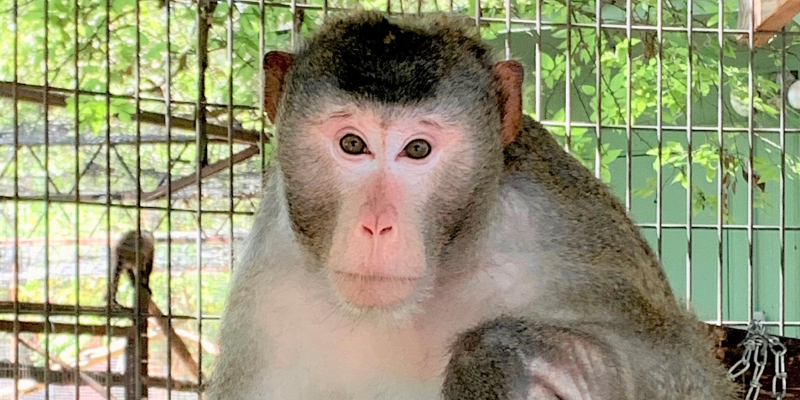Covid-19 may have put matchmaking on hold for humans, but at PPI the last few months have seen some successful introductions, including java macaque Milano and long-tailed macaque Hillary.
They had each been living with other macaques when care staff picked up on some compatibility issues. But now all signs point to happily ever after—Milano and Hillary spend most of their time cooing at each other and grooming.
Milano arrived at PPI in 2010 via an extraordinary rescue situation with many young primates, multiple destinations, unprecedented collaborations and new enclosures being built and fitted quickly at four sites. A New Jersey animal testing lab — Aniclin Preclinical Services,— had closed its doors, resulting in 55 java macaque monkeys looking for refuge. They had been used in drug toxicology research. The collaboration became known as “Operation Monkey Trek.”
PPI welcomed 25 of the java macaques, including Milano.
Hillary arrived at PPI in 2016 after being released from John Hopkins University. Her arrival brought with it the good news that the university is no longer required to perform a scan in a non-human primate before going into the clinic with a new radiotracer. Radiotracer is what is injected into a patient’s arm or breathed in as a gas prior to PET scans, which use radiation, or nuclear medicine imaging, to produce three-dimensional, color images of the functional processes within the human body.
In March, Junior lost her longtime companion, Shy. These two tamarins lived in a habitat specifically modified to accommodate their geriatric needs. After Shy's passing, Junior was introduced to Rowdy, our spunky and active marmoset. Despite their opposite personalities—Rowdy is very people oriented and always runs to greet you while Junior is more timid—and their different physical capabilities, the two have hit it off. They sleep together every night in Junior’s favorite cardboard box. Opposites do attract!

